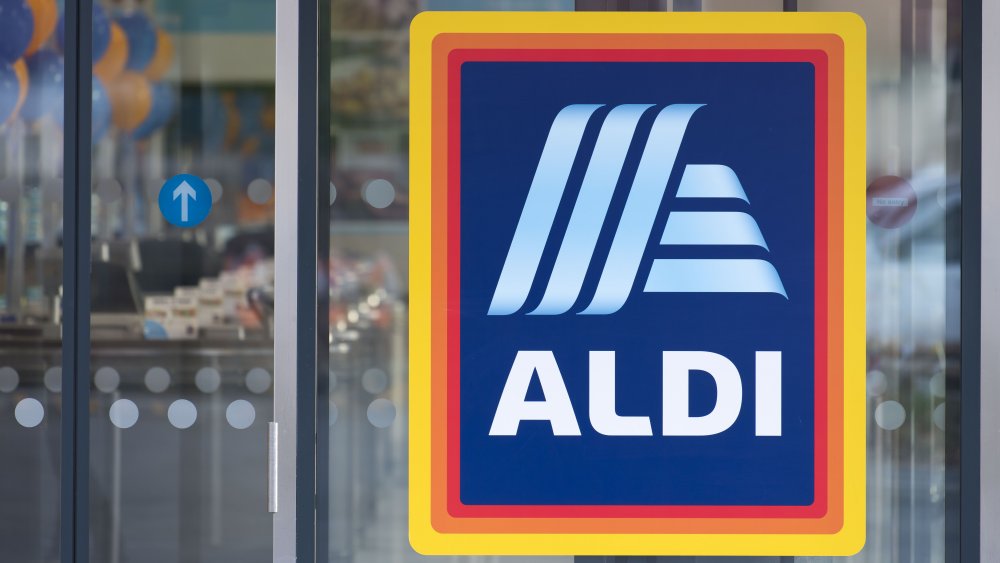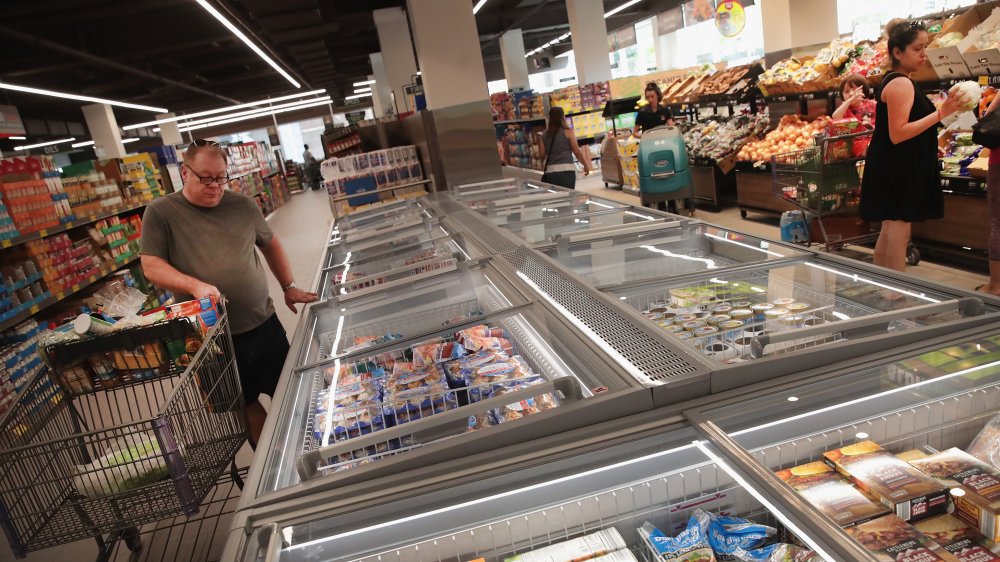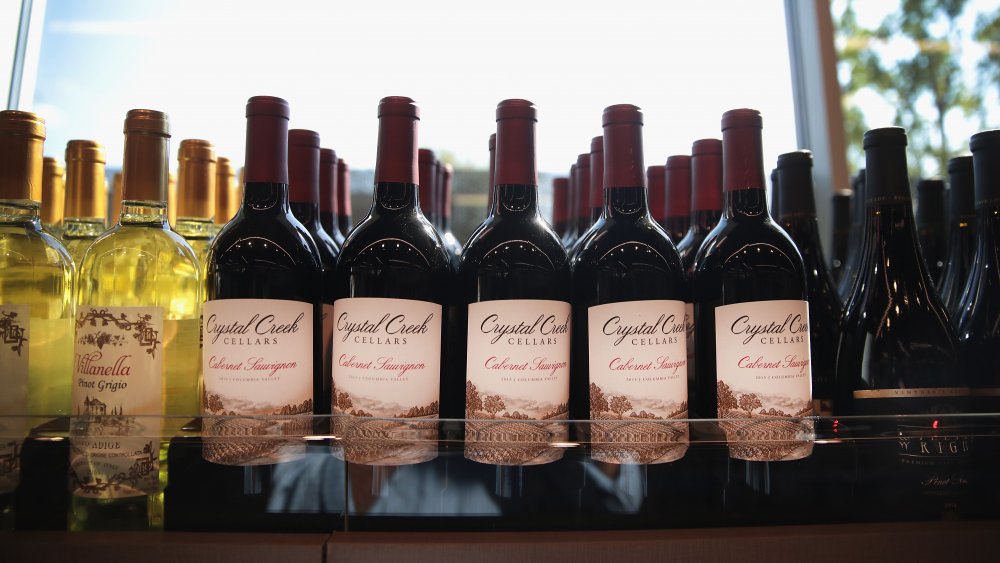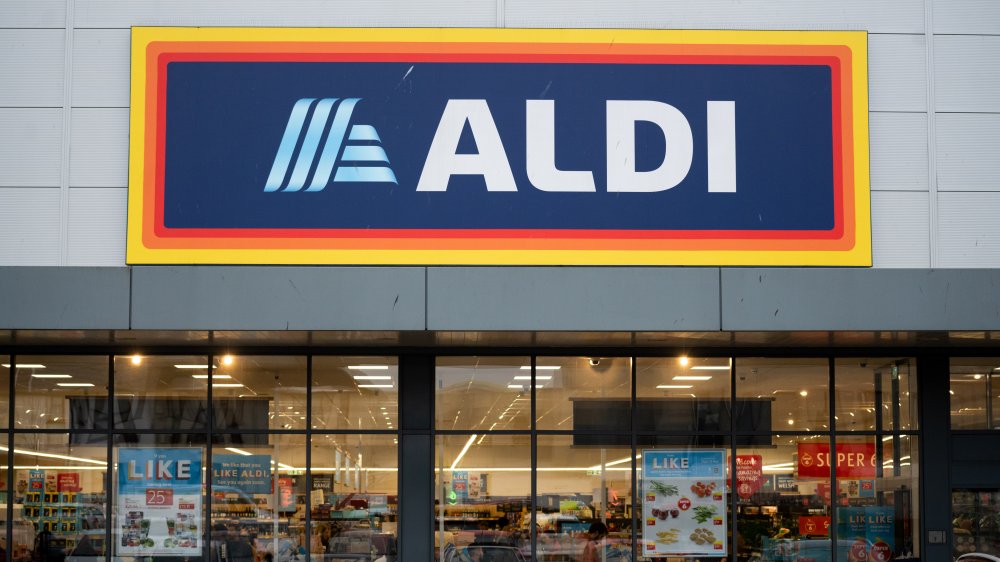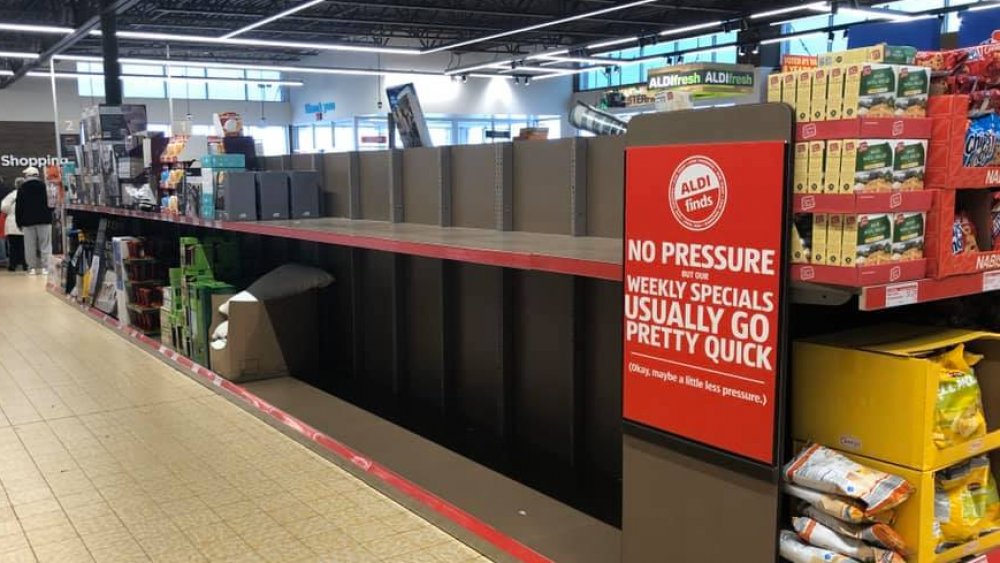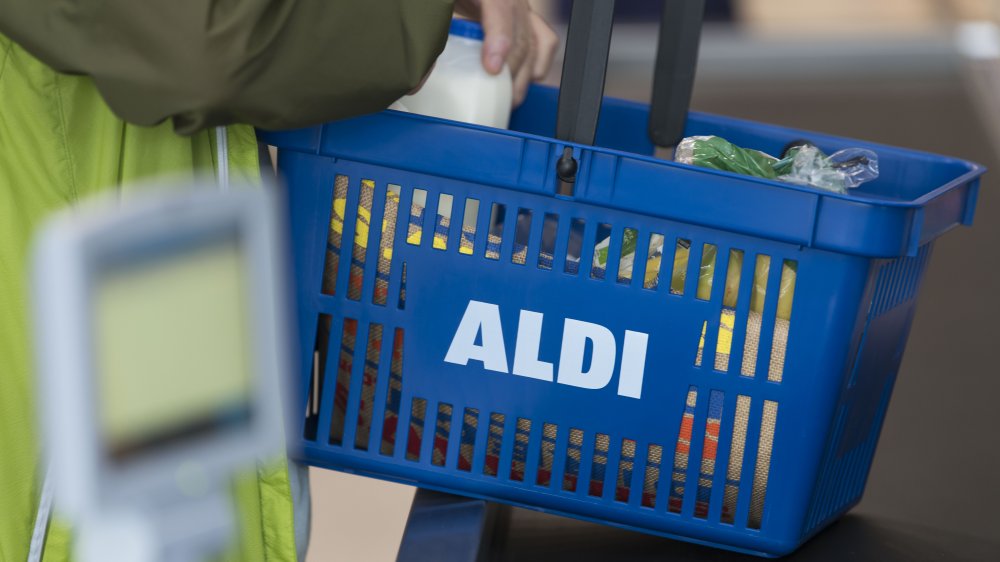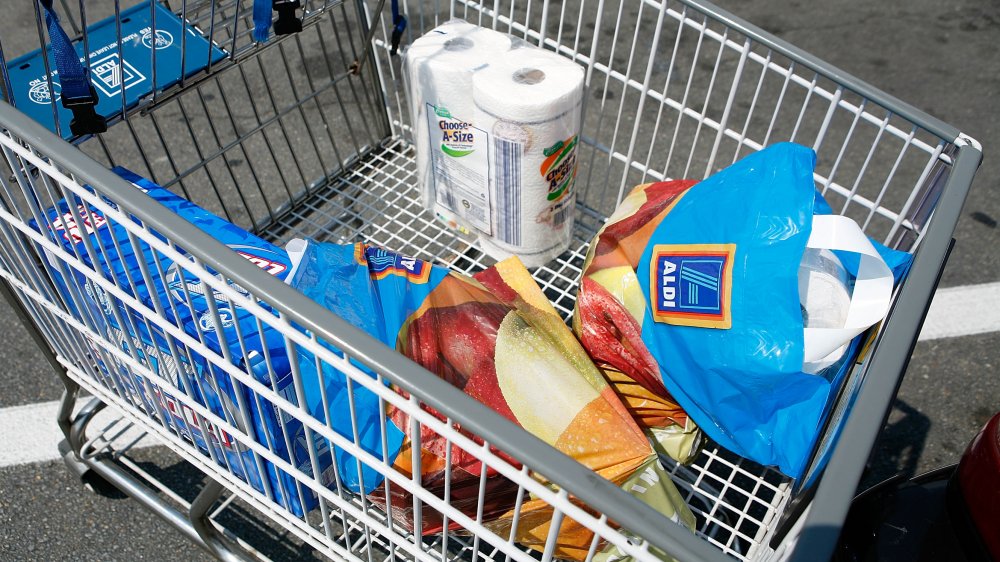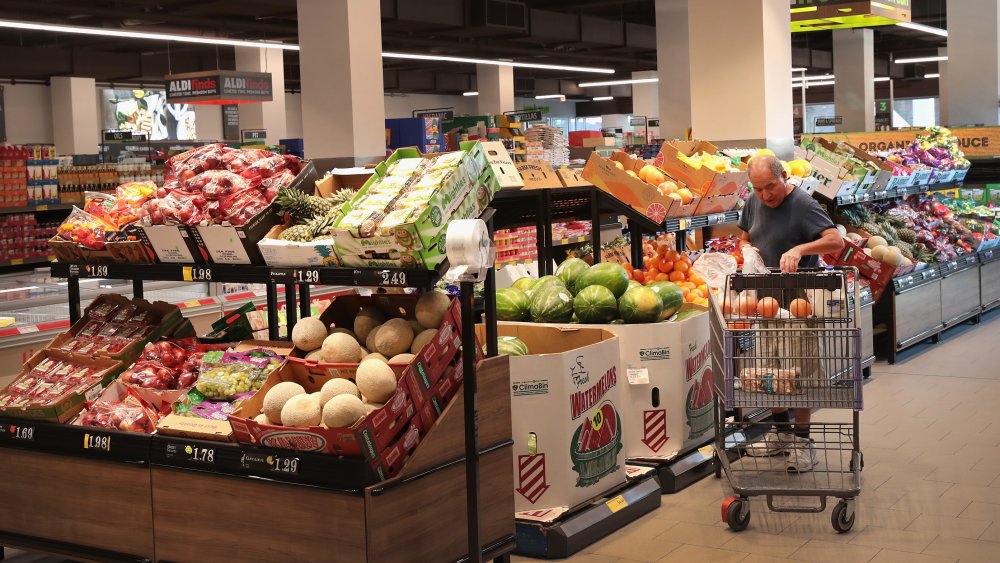How Aldi Tricks You Into Spending More Money
According to popular chain Aldi, when it comes to grocery shopping, "great quality should come with everyday low prices." That guiding principle has helped the German company become a major competitor in the supermarket industry in Europe, and more recently, here in the United States. The grocery chain, which claims to serve more than 40 million customers every month, has grown to more than 2,000 stores across 36 states over the last four decades, with more plans to expand still underway.
Today, Aldi is known and loved worldwide for its great service, fast shopping experience, and low prices. However, despite Aldi's claims that it offers savings and value at every turn, the company does have a few tricks up its sleeve to get customers to spend more money, from its design strategy to store policies. We're laying out the secrets for you, so keep scrolling before your next grocery run.
Aldi's store layout encourages you to canvas every aisle
Most of us know what it's like to browse the grocery store aisles on a weekly shopping run and end up coming home with a few extra items that caught our eye. Aldi capitalizes on this tendency with a strategic store design that helps to maximize your shopping experience while encouraging you to browse every aisle, hopefully finding more products to buy along the way.
When you walk into most grocery stores, one of the first things you see is the produce section. At most Aldi stores, you'll instead find pantry items in the front, with produce stocked at the back along with bread. Aldi says it's thinking with the customer in mind, telling the Daily Mail the reason for their layout is to keep delicate items on top so they won't get damaged by sturdier items in the cart. It also means that you'll have to make your way through the whole store even if you only need to pick up some apples and a loaf of bread.
Strategically placed items, including alcohol and weekly deals, encourage impulse buying at Aldi
Aldi's store layout is designed to make it easy to buy much more than your basic food and grocery staples.
All stores feature a weekly Aldi Finds section, offering a range of home and garden items. It's located in the center of the stores. Aldi reportedly says this helps improve customer flow to avoid crowds. Less crowding makes it easier to browse the towering displays of limited-time specialty items while also having to make your way through the other aisles.
Additionally, Aldi's award-winning alcohol section is another lure for customers. It's said that you can usually find it right near the store entrance. That means Aldi's selection of high-quality and inexpensive liquors and wines is one of the first things you see when you walk in. How do you say no to the best whiskey in the world when it's $18 and sitting right in front of you?
Aldi employs a number of strategies to keep prices super low
Part of Aldi's claim to fame is its commitment to low prices. The company employs a number of strategies to pass on savings to its customers, from its minimalist approach to its huge selection of private label products.
Aldi says a whopping 90 percent of its products are Aldi exclusive brands. The company says this allows it to "provide the same high-quality product without passing on all of the hidden costs associated with the national brands, such as marketing and advertising." It also means the store stocks fewer products overall and limits the number of choices consumers have to make. This combination of convenience and value encourages shoppers to buy more and load up on the savings.
Majorly reducing overhead costs is another major way Aldi keeps costs low for customers. Simple packaging, a bare-bones staff, and bagging their own groceries are some of the things customers have come to expect at Aldi in exchange for super low prices. Aldi's operating costs are estimated to be roughly half that of other mainstream grocery retailers.
Aldi offers a weekly, rotating 'Special Buys' section
One of the most blatant ways Aldi tempts shoppers to spend more money is through its weekly rotating selection of specialized products. The products range from all kinds of household items to premium food items to quirky seasonal items.
These Special Buys (called Aldi Finds in the U.S.) are limited-time and limited quantity products. The inventory changes every week, and once an item is sold out, it's gone. And some items literally fly off the shelves within seconds. As The List suggests, these rotating weekly specials help create a sense of urgency and encourage shoppers to buy now so as not to miss out on a potential deal. Some shoppers just can't resist the impulse.
In the UK, Aldi shoppers can pre-order Special Buys ahead of time, but in the states, you'll have to head to your local Aldi to see what kind of items are in stock that week to get your hands on the latest deals.
Aldi woos customers with a double money back guarantee
Another trick Aldi uses to encourage customers to spend more is by making it as low-risk as possible to do so. The company does this through its generous return policy, dubbed the Aldi Twice As Nice Guarantee. It upholds that customers who are not totally satisfied with a product can bring it back to the store along with the receipt and get a full refund as well as a replacement product. It's worth noting that there are a few products that are not covered by the Twice As Nice Guarantee, including alcohol and some non-food Aldi Finds, but the store will usually give either a replacement or a refund.
Overall, the policy encourages shoppers to try new things and maybe buy more products because you have nothing to lose — if you don't love something, you can get double your money back.
Some Aldi stores also offer post-holiday clearance sales
For those who really can't say no to a bargain, you might want to avoid Aldi stores right after a holiday.
According to grocery bloggers, Aldi offers some pretty steep clearance discounts after major holidays like Valentine's Day, Halloween, Christmas, and Easter. And when we stay steep, we mean it. Markdowns can be anywhere from 50 to 75 percent off and the discounts apply to both food and non-food items.
This trick really targets those shoppers who can't help but stock up during a sale. If the wrapping paper is marked down to just 25 cents a pop, why not go ahead and grab ten rolls? Though it's worth pointing out that these shoppers who end up spending more on clearance items may end up getting the best deals in the long run. Smart shopping experts advise that the days and weeks right after a holiday are the best time to stock up on gear and decor for next year's festivities. It makes sense considering that stores are looking to get rid of all their leftover stock and prepare for a new round of inventory.
Aldi charges for shopping bags
Aldi inevitably ends up making more money off customers every day because of its well-known shopping bag policy.
The company encourages shoppers to bring their own bags when shopping because it's more environmentally friendly and helps cut down on waste, as well as cutting down on costs for the store that they don't end up passing on to the customers. But at the same time, Aldi also makes it really easy and convenient for customers to buy shopping bags right there at the register. The company offers plastic, paper, and more durable reusable bags ranging in price from around eight cents to $1.99.
Whether you forgot to grab your shopping bags for a last minute grocery run or you just can't be bothered to lug your cart full of stuff home unbagged, Aldi has got you covered — for a price.
Aldi slightly upcharges for the convenience of delivery
Aldi now offers shoppers the option to have their groceries delivered via Instacart in more than 95 percent of its stores. However, this convenient service can wind up costing shoppers more money.
Sure, there's the Instacart delivery fee, which customers have come to expect. On top of that, Aldi says that some products may be more expensive when purchasing them on Instacart versus in-store. Aldi doesn't say much about why this is the case, other than "to cover the cost of personal shopping from order to order."
You might also end up spending extra money on bags when ordering delivery. Aldi does not waive those bag fees even for Instacart couriers, and you could have that cost passed on to you depending on where you are. According to shoppers who have used the service, Instacart notes on its website that "a bag fee may be added to your final total if required by law or the retailer. The fee will be visible on your receipt after delivery."
Some items at Aldi are only sold in bulk
Another way Aldi gets shoppers to spend a little more in the store is by only offering certain items in bulk quantities. Some of Aldi's goods, including a lot of their fruits and vegetables, are sold in bulk packaging. That means if you want to pick up some apples or oranges for the week, you might not be able to buy just one or two of each. You have to buy a whole bag of them. Depending on what you need, that could add some extra costs.
According to The Penny Hoarder, potatoes and onions specifically only come in two- or five-pound bags, which is a lot (do you really use more than one or two onions in a week?). Granted, you might want to think twice before you buy any produce at Aldi. But if you do, be prepared to buy in bulk.
